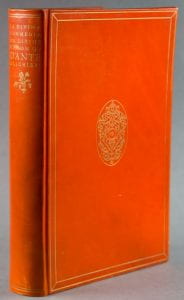Bridging the Digital Gap (Part II)
By isabelle.reynolds-logue.13, on 18 July 2019
In my last post I explained what I have been up to for the last 9 months as the Bridging the Digital Gap trainee at UCL. Now, I will show you some of my favourite digitisation projects so far…
The UCL College Collection
The UCL College Collection contains, among other things, photographs of the exterior and interior of UCL buildings.

This photograph looking towards Gordon Street (Gordon Square is signified by the trees in the background) features some graffiti from the mid-twentieth century: ‘Merry Xmas. Love peace anarchy.’
The Little Magazines Collection
The Little Magazines Collection was set up in 1964 to gather together little magazines from the UK, North America, Commonwealth and Europe. We have defined Little Magazines as “those which publish creative, often innovative work, with little or no regard for commercial gain.”
Jewish Pamphlets
I worked on a joint project with Dr. Maria Kiladi to digitise the Jewish Pamphlets Collection.
One challenge with these was that some pamphlets were read from right to left, when in Hebrew, as opposed to ones written in English. Another challenge was that I am unable to read Hebrew, so with pages entirely in Hebrew it was not easy to know which way round they were supposed to be. Additionally, the pages containing Hebrew characters were automatically rotated by the OCR software when generating PDFs, so I had to manually go through these and change them individually.
The entire collection can be found in our digital collections repository.
Library Exhibition
Again working alongside Maria, we digitised material that was going to be on display for the exhibition, ‘From Small Library Beginnings: a brief history of UCL Library Services.’ The photographs are online but were also printed in the exhibition catalogue.
Dante’s Divine Comedy
This copy of Dante’s Divine Comedy features illustrations that go across a double page spread. This is not straightforward to capture with one camera pointing down towards the item, as the print is not flat, and cannot be made flat. There was also a problem of shadow appearing in the centre along the gutter. In order to capture the print as best I could, I ended up taking two separate images, on of each side of the book so that there is even illumination, and merging them in Photoshop.
You can read more about this item in this related blog post.
Slade Archive Reader
Finally, the Slade Archive Reader is now available as four fully digitised, searchable PDFs.
My first thought was, why, if this is a printed, word processed document, do we not have a digital copy already? Unfortunately this is often the case with older word processed material. So, we have the task of re-digitising something that was already digital! Once we began looking at the volumes, it was clear that digitising the Slade Archive Reader would not be without its fair share of challenges. Primarily, the four volumes are bound quite tightly, which made it hard for me to keep the pages flat when photographing them. This curvature of the pages leads to a distortion of the text, which in turn makes it difficult for the OCR software to pick up.
You can browse all of our digital collections online.
UCL Special Collections is committed to making digitised content available online. Although every effort has been made to identify and contact rights holders, we recognise that sometimes material published online may be in breach of copyright laws, contain sensitive personal data, or include content that may be regarded as obscene or defamatory.
If you are a rights holder and are concerned that you have found material on our Digital Collections repository for which you have not given permission, or that is not covered by a limitation or exception in national law, please contact us at spec.coll@ucl.ac.uk
 Close
Close
















